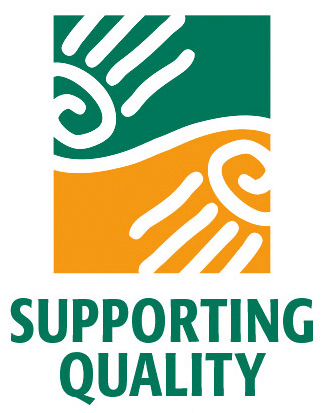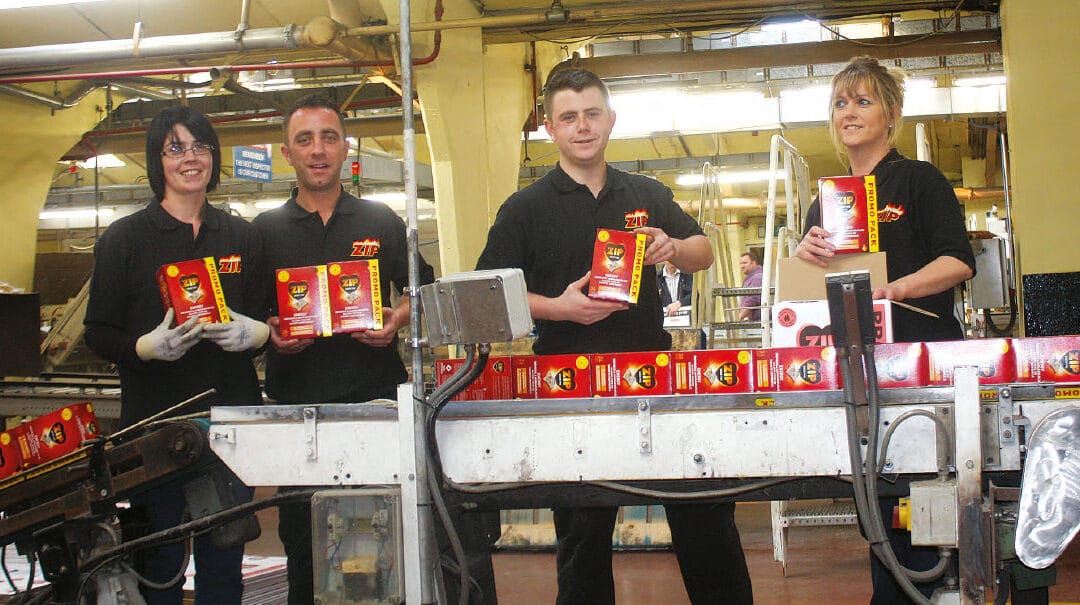EVERY snow cloud has a silver lining for the workers at the Zip manufacturing plant in Castlebellingham, Co Louth. As Ireland’s leading producer of firelighters and fire logs, production increases as temperatures drop and people seek the comfort of an open fire.
A member of the SIPTU-endorsed Supporting Quality campaign, the Castlebellingham plant has been in operation since the 1950s. It employs an overwhelmingly local workforce from the surrounding north Louth area, although this includes workers that are originally from Eastern Europe, Brazil and India.
“It is very much a local workforce,” says factory supervisor, Bernard Corrigan, “There are a few from the Ardee direction, which is about 15 miles away, but most are from the immediate vicinity. The whole area is involved in the plant, I would say nearly everybody that is in the housing estates around here has a family member who has worked in the plant at some stage”.
During the winter months the workforce can increase to 150 employees, working three shifts over a 24-hour period, as demand increases for firelighters and logs. For many employees, working in the plant is a family tradition. Janice Molloy, a machine operator, says: “I’ve worked here for 19 years. I come from a family of 18, and down through the years 10 of us would have worked here. Four are working here at the moment”.
The plant’s existence has supported the local community through difficult times. Declan Hoey has worked in the plant for 18 years “My father, my brother and two sisters have worked here in the past,” he says. “Working here made it possible for people to stay in the area. It’s been vital to Castlebellingham”.
The plant also utilises local produce in its production process. Mark Murray, who works in the fire log production unit, says: “The logs are made from willow grown on farms across the north-east. The willow is chopped up and mixed with natural waxes. Once blended together it is then moulded into a log that you put into a fire and heats up your house”.
The development of the fire log manufacturing unit, which opened in 2010 and last year produced more than three million logs, is just one of the innovations the plant has seen in recent years. SIPTU shop steward, Gerry Gilfedder said: “The business is always trying for new markets, always bringing in new machines which ensure the viability of the company.” “I’ve worked here over 25 years. It is a good company and a good employer; it helps the local GAA club and has contributed to different events in schools and other community events. When I started working here, I worked on the lines but currently I work in the stores but I could go back on the lines. We’re flexible in that sense. We can all multi-task”.
According to factory director, Denis McCourt, the secret of the plant’s success is “getting the right products, making sure it does not damage the environment and making sure everything is safe for the workers.” “Our major market has always been Ireland. We’re also very big in the UK, France, Belgium and a lot of other European countries. We have always been in Canada and we’ve now launched in America. This year we have launched into Australia, South Africa, Brazil and the Middle East.”
For the company, research and development is crucial to our success. “The way we work is to produce the best quality product in the market,” says Denis. “When we go to a market we take the best quality products there and test them here. Really what you need is the longest burning time. We pride ourselves on Zip being a quality product that lights first time, every time. “We can make firelighters based on consumer needs from a six to seven minutes burning time to the latest one which is being brought out in Ireland, the Super Starter, which burns for 28 minutes.”
A local manufacturer with a global reach and a fully unionised workforce, Zip is the type of company that is helping to build a sustainable Irish economy. It is the type of company that deserves your backing as part of the Supporting Quality campaign.
This first appeared in Liberty paper in November/December 2014.

